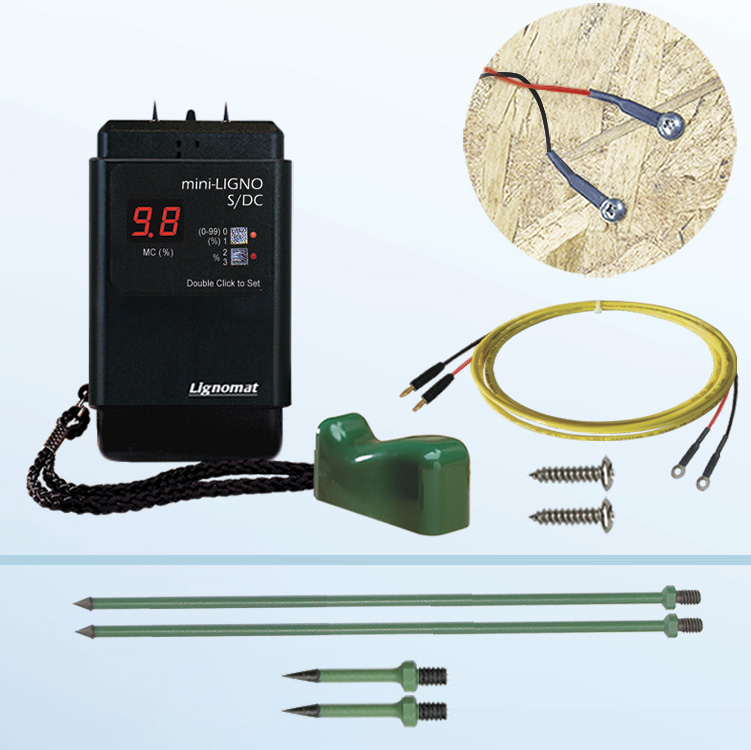How a Moisture Meter Can Boost Your Construction Projects and Protect Against Damages
The Ultimate Guide to Moisture Meters: A Comprehensive Overview and Just How They Can Save You Money
In the world of structure maintenance, building, and numerous markets, the value of properly gauging moisture degrees can not be overstated. Dampness meters function as important tools in discovering and keeping track of moisture material in materials, assisting in stopping pricey problems and guaranteeing the high quality of items. Comprehending the nuances of various sorts of wetness meters, their applications, and the potential cost-saving advantages they supply can be a game-changer for companies and experts alike. Uncovering how these tools can not just enhance procedures however likewise add to economic cost savings is a trip worth starting.
Kinds of Moisture Meters
One common type is the pin-type dampness meter, which measures the electrical resistance between two pins placed into a product. Pinless moisture meters, on the other hand, use electromagnetic sensing unit plates to check a bigger location without causing damage to the product's surface area.

Infrared dampness meters measure the thermal residential properties of a material to identify its moisture material non-invasively, making them valuable for applications where pin or pinless meters might not be suitable. Comprehending the various types of dampness meters offered can assist industries select the most proper device for their particular dampness dimension demands.

Benefits of Using Dampness Meters
Wetness meters use very useful advantages in properly checking and examining wetness degrees in varied products and environments. One of the key advantages of using moisture meters is the prevention of potential damage created by excess moisture.
Moreover, making use of moisture meters can lead to raised power efficiency. In agricultural setups, moisture meters play an essential duty in maximizing crop returns by making it possible for farmers to keep track of soil wetness degrees and make notified irrigation choices.
Exactly How to Pick the Right Dampness Meter
Selecting the proper moisture meter includes taking into consideration key aspects such as material compatibility, measurement array, and calibration accuracy. When choosing a dampness meter, it's necessary to ensure that the meter appropriates for the details product you will be testing. Various materials have differing electrical properties that can affect wetness analyses, so choosing a meter created for your product is crucial for precise outcomes. Furthermore, consider the measurement range of the dampness meter. Make certain that the meter can find wetness degrees within the variety required for your applications. Calibration precision is one more crucial factor to remember. Go with a dampness meter with trustworthy calibration to make sure consistent and accurate analyses. Some meters might require regular calibration changes, so comprehending the calibration process is necessary. By meticulously assessing these elements, you can choose a moisture meter that satisfies your needs and offers exact wetness measurements for your jobs.
Proper Methods for Moisture Meter Use

Expense Savings Through Wetness Meter Applications
Exactly how can the tactical usage of wetness meters cause substantial price savings throughout numerous industries? Wetness meters play an essential function in expense financial savings by read this protecting against possible damage and making sure quality assurance in various fields. In the farming industry, dampness meters help in establishing the optimum time for collecting plants, stopping over-drying or excess wetness that can affect the end product's top quality. This accurate surveillance assists farmers avoid unneeded losses and optimize their return.
Likewise, in building, wetness meters assist protect against costly damages by identifying wetness levels in structure products, such as wood or concrete, which can bring about architectural issues otherwise addressed quickly. By recognizing trouble locations beforehand, contractors can take corrective procedures to prevent comprehensive repairs or substitutes, ultimately conserving money and time.
Additionally, in the food handling industry, wetness meters are essential for checking product quality and ensuring compliance with safety and security policies. By properly determining wetness content in foodstuff, makers can avoid putridity, maintain freshness, and lower waste, leading to significant cost financial savings. In general, the strategic application of dampness meters is a straight from the source useful investment that can bring about significant price reductions and boosted effectiveness throughout different industries.
Conclusion
In final thought, dampness meters are important tools for identifying and determining dampness degrees in different materials. By making use of the appropriate moisture meter and following correct techniques, users can properly stop pricey damages triggered by excess dampness. Buying a high quality dampness meter can lead to substantial cost savings in the future by recognizing possible concerns at an early stage and enabling punctual remediation. Ultimately, dampness meters are vital instruments for preserving the integrity and durability of frameworks and products.
Dampness meters offer as vital devices in finding and keeping track of moisture material in products, assisting in preventing costly problems and making sure the quality of products. Infrared moisture meters measure the thermal homes of a material to determine its moisture web content non-invasively, making them useful for applications where pin or pinless meters might not be suitable.Moisture meters supply very useful benefits in accurately assessing and monitoring moisture degrees in varied materials and atmospheres. In agricultural setups, wetness meters play a critical function in optimizing plant yields by enabling farmers to keep an eye on soil moisture levels and make informed watering decisions.In verdict, moisture meters are valuable go to this site tools for detecting and measuring dampness levels in various products.